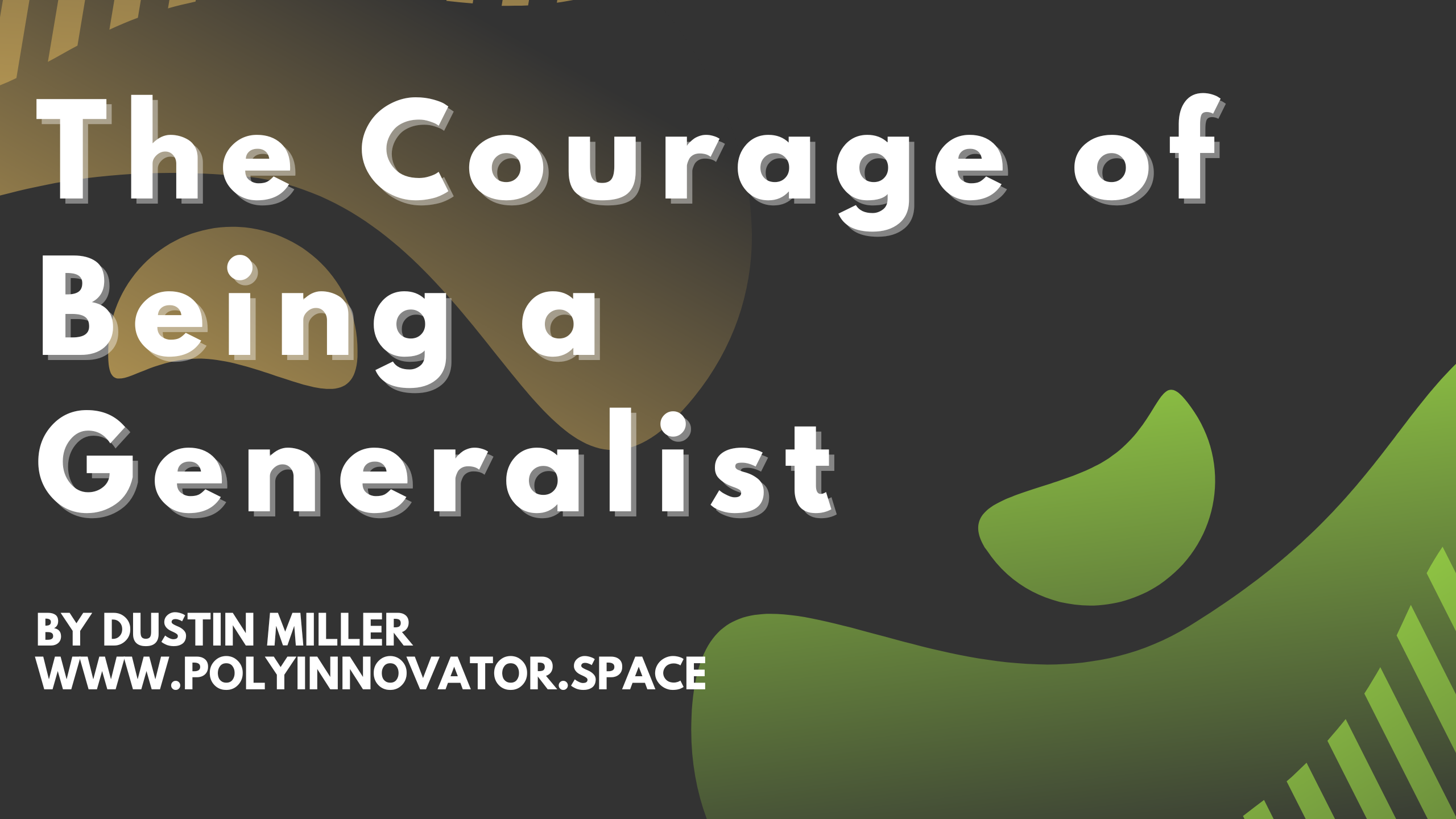From the various points of strength and power that being a generalist can provide, to the points of failure and strife. There is a lot to being a multidisciplinarian, and let's go into those things today.
P.S. This post was inspired by the another great blog post:

-Alicia Cressall
I like the way she spells it out as a concept, and honestly too Alicia gets the idea that it isn't about ego. It is about understanding, and compassion, through the lens of pools of knowledge.
We may NOT be superstars, but we CAN become megastars
While generalists or jacks of all trades generally have a cap on their stardom, or in other words reputation for something. The specialists often get a lot of the attention. Why is that?
Well in order to be someone of value, then you have had to do something of value. Contribute something of note to a field, whether it is a dissertation, a book, or even a TED talk. Something that a large amount of people can find, and more importantly benefit from.
Specialists often GET to that point of value quicker, and thus in the modern eye seemingly get more attention or have all the stardom. However that isn't always the case.
People like Neil deGrasse Tyson, American astrophysicist, is known for his works in space. However he is a prolific content creator, host of events/shows, podcaster, and much more. He is KNOWN as a specialist, but in practice he is far more than that. I do think that part of his popularity originates too from the fact that he can market himself, and he has skills in other areas that bring people's attention from those areas to him.
Transcontextual Thinking
By being generalists we can bring together disparate thoughts from not only other knowledge areas, but through that from other departments in the view of a company generalist. Think of the worker who has their hands in all of the cookie jars, but unlike a jack of all trades; They have been learning how to make the cookies, and they've been eating them for a while.
The generalist is much more knowledgeable than the JoAT, but not as deeply skilled as the polymath. However they can bring a lot to the table, and as Alicia said in her article.
"Generalists are in a unique position to help specialists better understand each other. Because we are curious about different specialties, we can speak to different groups of people and understand their perspectives. This helps us to always see the big picture, allowing everyone to work together more cohesively."
-Alicia Cressall
This is a rough scale I made to show the levels of knowledge of the multidisciplinary people:

We see the missing link in the Bigger Picture
As Alicia puts in it in her article:
When we focus only on the superstars, we lose sight of the people who tie all the superstars together.
By being the thinkers of multiple fields, there is now a bridge between those fields of knowledge... YOU. You become the missing connection that may innovate new ideas into either knowledge area. I am speaking in terms of two, but it can in fact be many more pools of knowledge than that.
Be the one who brings the superstars together!
![Official Website for Dustin Miller PolyInnovator [LLC]](https://polyinnovator.space/content/images/2025/03/polyinnovator-logo-2024.png)












